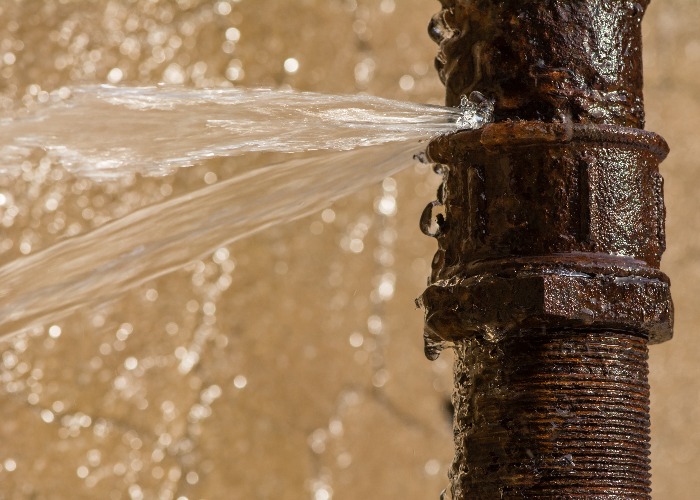Best ways to protect your water pipes this Winter - and what to do if a pipe bursts

Taking early steps to protect your water pipes from freezing weather could save you up to £440 this Winter.
Sections
Why you need to protect your water pipes
Burst pipes, which come under the umbrella of “escape of water” claims, are most common over the colder months.
Aside from the obvious inconvenience, tradesman website Checkatrade estimates the cost of fixing a burst water pipe could be anywhere between £220 and £440 – and that's assuming it's easy to access.
Insulate your pipes and water tanks
It's not just you that needs to wrap up warm in the Winter!
Not only will insulating your pipes protect them from bursting when the weather gets cold, but it will also save you money on your energy bills.
You can get supplies from DIY shops or online. Be sure to wrap bends or hard-to-reach sections of pipe with securely fixed strips of insulation.
Find your stop tap now (just in case)
Locate your stop tap or stopcock.
It’ll likely be below the kitchen sink or where the service pipe enters your property.
It controls the water supply going into your home, so you'll need to be able to turn it off if there are any problems.
Here's a handy video from Thames Water about how to find and use your stop tap.
You should also insulate outside taps or turn them off at the stopcock and drain the water from them.
|
PROMOTION
|
||
|
Repair dripping taps
Make sure you repair any dripping taps or overflows as even small build-ups of ice can cause blockages.
Get contact details of a good local plumber
If disaster strikes, you want to know that a good plumber is on hand to come help.
There are plenty of sites that can help you find recommended tradesmen in your local area, such as RatedPeople.com and the Association of Plumbing & Heating Contractors.
Leave the heating on
Leave your heating on low (at least 12C) if you go away for a few days and set it to come on at least once a day.
Ask a friend or relative to visit your home every day so that if a pipe bursts, it’ll be detected as soon as possible, minimising damage.
Energy bills increased by 10% for millions of households last week – but you can fight back by switching to a cheaper energy deal. In fact, Uswitch estimates you'll save £211 on average by doing so. Compare deals now.
Make sure you have insurance
It’s also vital that you look at your home insurance before the chilly weather starts to kick in.
Check it to make sure it covers everything you may need, particularly if your policy is a bit cheaper than most.
If the worst does happen, buildings insurance will cover the cost of the pipe itself while contents insurance will cover any damaged items in your home.
For those of you who rent, your buildings insurance should be taken care of by your landlord but it’s a good idea to have contents insurance in place for yourself as well.
I have a frozen pipe!
If you do discover a frozen pipe, deal with it as quickly as you can.
First of all, find your stopcock and turn it off, then make sure any nearby cold taps are turned on to let water escape when it thaws. Don’t turn any hot taps on until the central heating is switched off.
As for your possessions, move or cover anything which could get damaged if the pipe bursts when the water thaws.
After that, check all visible pipes for damage or signs of freezing. If you can pinpoint the frozen pipe, lay a hot water bottle or a hot wet towel on it. You could also warm it with a hairdryer if there’s an electrical point within reach.
If you notice a leak once the water has thawed and pressure in the pipe has built up again, turn off the stopcock and call your plumber.
|
PROMOTION
|
||
|
Making an insurance claim
It’s wise to contact your insurer as soon as possible. Some have a 24-hour emergency line, which you can call in this type of situation.
Double-check what you’ll need to support your claim such as photographs of damage or receipts for plumbing repairs or decorating.
A loss adjuster will usually be in touch within 24 hours (be prepared to wait longer if it’s a particularly cold time of year) to assess the damage and in extreme cases, arrange alternative accommodation.
After they’ve done their initial assessment, they should be able to give you a rough timeline detailing what needs to be done to restore your home, who will do it and how long it will take.
*This article contains affiliate links, which means we may receive a commission on any sales of products or services we write about. This article was written completely independently.
Comments
Be the first to comment
Do you want to comment on this article? You need to be signed in for this feature
